Dark web scans should be an essential part of a healthcare practice’s cybersecurity plan because it’s not always in your control when your data gets leaked. If a data breach happens with a third party, you may not always be made aware of it, and this means malicious actors can leverage the stolen data to launch attacks against your practice before you know your information has been stolen. If your practice has been attacked directly, having regular dark web scans can help you catch a data leak early and quickly take steps to protect your network from further harm. But how do dark web scans work?
How Dark Web Monitoring Works

Dark web scans function by searching through as much of the dark web as possible with tools that identify information related to your office that malicious actors are using or selling. A managed service provider (MSP) can search for the domain names of your healthcare, email addresses used by healthcare practitioners at the office, or any information that could be linked to your business or staff. This process pulls data from chat rooms, peer-to-peer networks, botnets, and websites and lets you know where your data turns up. An IT consultant can then provide a detailed report on what information has been stolen from your business and inform your next steps for protecting your data!
What Gets Stolen?

Dark web scans can reveal an alarming amount of stolen information. Parts of passwords, whole passwords, personal email addresses, patient names, phone numbers, social security numbers, credit card numbers, and any other stolen data can appear on scans if malicious actors have gotten ahold of this information. Most dark web scans will show all the information stolen from your practice, where it was found, and which data breach led to your information being stolen, if it wasn’t the result of a direct cyberattack. Any data that your healthcare office stores on its network can be a target, and regular scanning can help spot the early signs of an attack or a successful data breach.
Alerts and Analytics

Tens of thousands of compromised records can appear on the dark web each day, and malicious actors target the healthcare industry often because of the value of the stored records. Having a service search the dark web for you means that you can identify trends in the cyberattacks targeting the healthcare industry and remain informed on the best practices to keep your data safe. Additionally, monitoring services provide alerts when your data ends up on the dark web, meaning you can catch leaked data and stolen credentials early to potentially prevent attacks and take early security measures to protect your office!
Summary
Healthcare professionals have so much of their information on the internet already, so implementing regular dark web scans can help identify when new information has leaked or when bad actors are looking for your sensitive data and credentials. By working with an IT consultant to monitor the dark web regularly, healthcare offices can make informed cybersecurity decisions after they find out their information has been stolen and know exactly when something has gone wrong. Our team of security experts want to show you how much of your data has already been leaked, so you can book a complimentary consultation for a dark web scan demo today!



